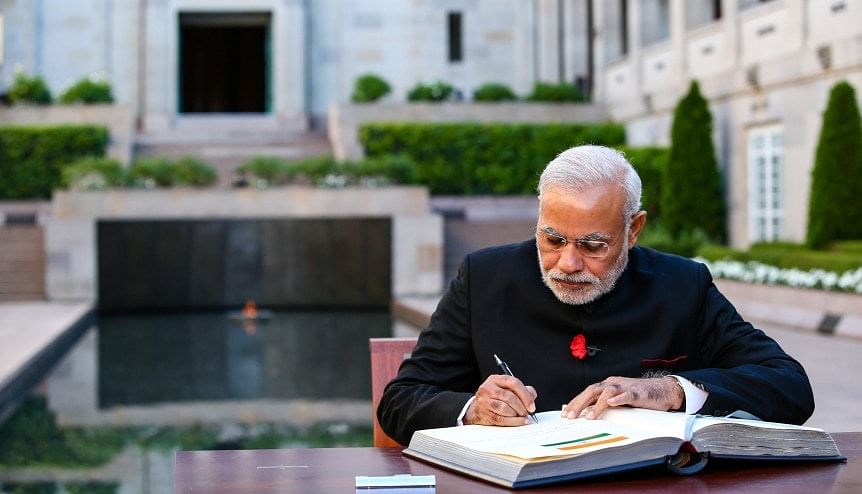The commerce department at the nudge of the Prime Minister’s Office is considering setting up a large specialised team to negotiate international trade deals. Such a team would comprise specialists drawn from the Indian Trade Service, Indian Foreign Service and trade lawyers.
It’s not only about the commerce department. On the home front too, Prime Minister Narendra Modi has recently set up a task force to recommend more efficient deployment of bureaucrats to PM’s priority schemes and do away with the practice of passing the ball.
Other steps such as asking secretaries to attend to a set of grievances on a weekly basis, clearly signals the Prime Minister’s resolve to usher in good governance. PM’s has just one line instruction…. responsiveness, transparency, accountability and predictability. A recent study by Akshay Mangla, assistant professor at Harvard Business School, reinforces this point.
His research establishes that bureaucracies do not operate in a political vacuum. Public institutions evolve in response to how political leadership conducts itself. This perhaps explains why certain bureaucrats perform better under an outcome and performance oriented political leadership compared to others.
Bihar’s chief minister, Nitish Kumar, and Modi are both examples of leaders who have turned around things at the State and Central level using largely the same administrative machinery. They brought in some changes at the helm to get the subordinate staff to deliver outcomes. They have also inspired other political leaders to follow suit.
Jharkhand has done this in past ?
Jharkhand, in past has carried out other reforms such as reduction in the number of government departments and improvement in ease of doing business, had allowed lateral entry in the appointment of advisers at the special secretary level.
It is indeed a positive step and one that acknowledges the lack of expertise amongst the generalist civil servants. This step makes even more sense in light of the fact that the so-called next generation economic reforms that India is looking to unleash actually vest at the State level.
Therefore, bureaucratic expertise will make a significant difference in the trajectory of India’s economic and inclusive growth. The Prime Minister’s Office has already asked the NITI Aayog to circulate this innovative practice of lateral entry from Jharkhand among fellow States so that the model could be replicated.
Hopefully, other States will follow soon.


